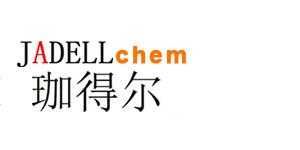Recombinant Human Activation-inducible TNF-related Ligand/AITRL 是在 E. coli 中产生的单一非糖基化的多肽链,分子量为 14.3kDa。
Synonyms
rHuActivation-inducible TNF-related Ligand/AITRL; TNFSF18; GITRL; TL-6; rHuAITRL
Species
HumanSource
E. coli Accession
Q9UNG2 Gene ID
8995 Molecular Weight
Approximately 14.3 kDa AA Sequence
METAKEPCMA KFGPLPSKWQ MASSEPPCVN KVSDWKLEIL QNGLYLIYGQ VAPNANYNDV APFEVRLYKN KDMIQTLTNK SKIQNVGGTY ELHVGDTIDL IFNSEHQVLK NNTYWGIILL ANPQFI Biological Activity
The ED50 is <5 ng/mL as measured by PMBC, corresponding to a specific activity of >2 × 105 units/mg. Appearance
Lyophilized powder. Formulation
Lyophilized after extensive dialysis against 50 mM Tris, pH 8.0. Endotoxin Level
<0.2 EU/μg, determined by LAL method. Reconstitution
Reconstitute the lyophilized recombinant Human Activation-inducible TNF-related Ligand/AITRL (rHuActivation-inducible TNF-related Ligand/AITRL) to 100 µg/mL using ddH2O. Storage & Stability
Lyophilized recombinant Human Activation-inducible TNF-related Ligand/AITRL (rHuActivation-inducible TNF-related Ligand/AITRL) is stored at -20°C. After reconstitution, it is stable at 4°C for 2 weeks or -20°C for longer. It is recommended to freeze aliquots at -20°C or -80°C for extended storage. Shipping
Room temperature in continental US; may vary elsewhere. Background
Human activation-inducible tumor necrosis factor receptor (AITR) and its ligand, AITRL, are important costimulatory molecules in the pathogenesis of autoimmune diseases. AITR and AITRL are both costimulatory molecules, which are pairs of molecules that interact with each other and are expressed at high levels on the surface of CD4+ CD25+ T cells. When these costimulatory molecules are activated, they inhibit the ability of the CD4+ CD25+ T cells to suppress the autoreactive T-cells. This results in an increased autoimmune response[1]. |



